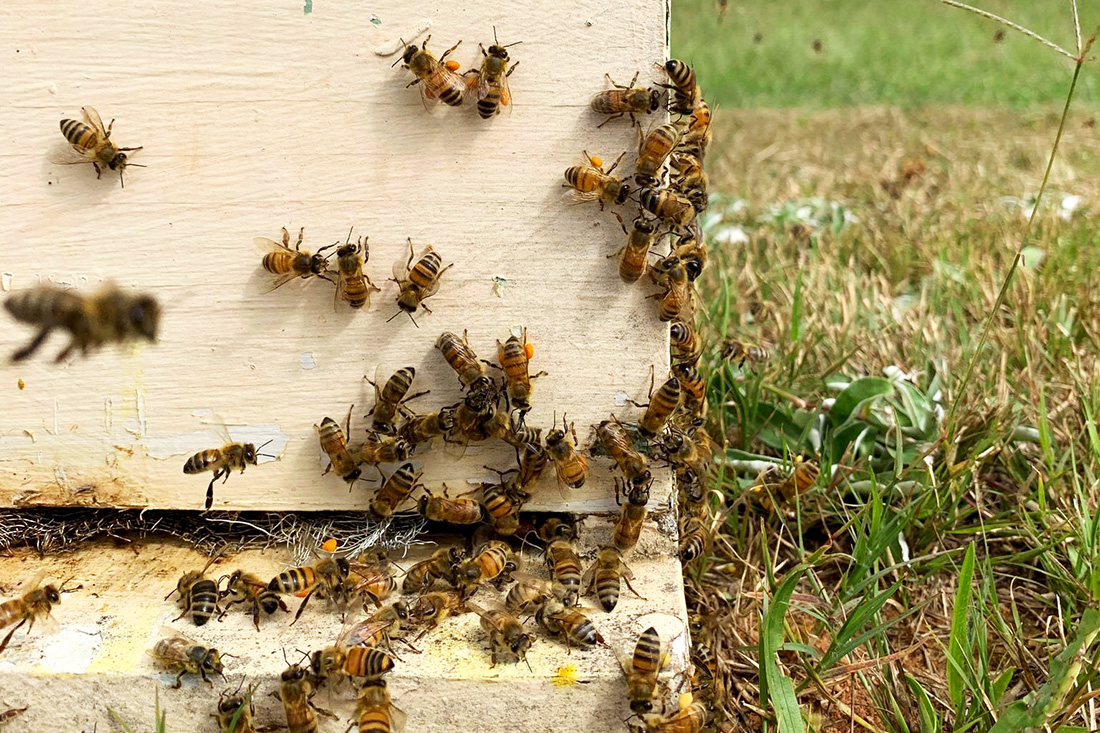When chill winds blow, the cozy warmth inside your home is inviting. That's why the scorpions, wasps and other uninvited pests show up there.
"They're called incidental invaders," said Nancy Hinkle, an associate professor of entomology with the University of Georgia College of Agricultural and Environmental Sciences. "They don't really want to be inside your house. They just don't want to be outside in the cold."
For years, Hinkle has tried to sell people on the idea that these insects are doing them a favor by showing up inside. But she admits it's a pretty hard sell.
"I'm still not getting that one across," she laughs. "But really, they're letting people know their homes aren't energy-efficient."
Look for holes
If your home has openings big enough to let wasps and other insects (six legs) or scorpions, millipedes and other arthropods (eight or more legs) come in, she reasons, it has openings that are letting heated air get out. Insects trying to escape the chill outside just follow that warm air inside.
The best thing you can do, she said, is some detective work. Scout around to find all the openings to the outside and seal them. "That's a long-term solution," she said. "It stops insects from coming inside this year, next year and for years to come."
Check the sweeps and weather-stripping on your doors. You may need to replace them. Use a silicone sealant to stop up the holes in walls and floors where pipes and wiring enter the house. Stuff larger openings with steel wool. (That's a good "recycling" use for old steel-wool cleaning pads.)
"Any place you can see light coming in from outside," Hinkle said, "there's an opening big enough for a scorpion to find its way inside."
No problem
The insects themselves aren't really a big problem. Even the scorpions and wasps don't normally last very long in unnaturally cozy homes.
"Most insects and scorpions typically desiccate quickly in the artificially dry air indoors," Hinkle said. "Often you don't even see them until they're crunchy."
Scorpions usually die fairly soon after they come inside, she said. But if you have a damp basement or storage area that has the silverfish, cockroaches or other little insects that scorpions can prey on, they might call that home for a while.
"Fortunately, our scorpions here in Georgia aren't dangerous," Hinkle said. "Their stings are comparable to wasp stings -- uncomfortable, but not a problem."
To avoid their stings, she said, it's a good idea to turn your shoes upside down before you put them on in the dark to make sure no scorpions are hiding there.
Reconsider
Spiders are great scorpion predators, she said. So you may want to rethink your aversion to the spiders around your home, especially the ones that live around the outside of the building.
You may want to rethink your landscaping, too. Typical Georgia landscapes are just about heaven for the kinds of insects that invade your house.
"We tend to put our foundation plants right up against the house in the South," Hinkle said. "But research has shown that if you move the shrubs two feet away from the house and replace organic mulch with gravel or pebbles, insects don't like to cross that no-man's land."
If scorpions do get in and you need to get rid of them, you can trap them in glue boards.
"Put the boards behind and under furniture and appliances," Hinkle said. "Scorpions prefer dark hiding places. They're more likely to be in closets and under beds than out in the open. Place glue boards where people and animals won't inadvertently encounter them."
And when you catch a scorpion, be sure to thank it for letting you know some of your costly heating is going to waste.








